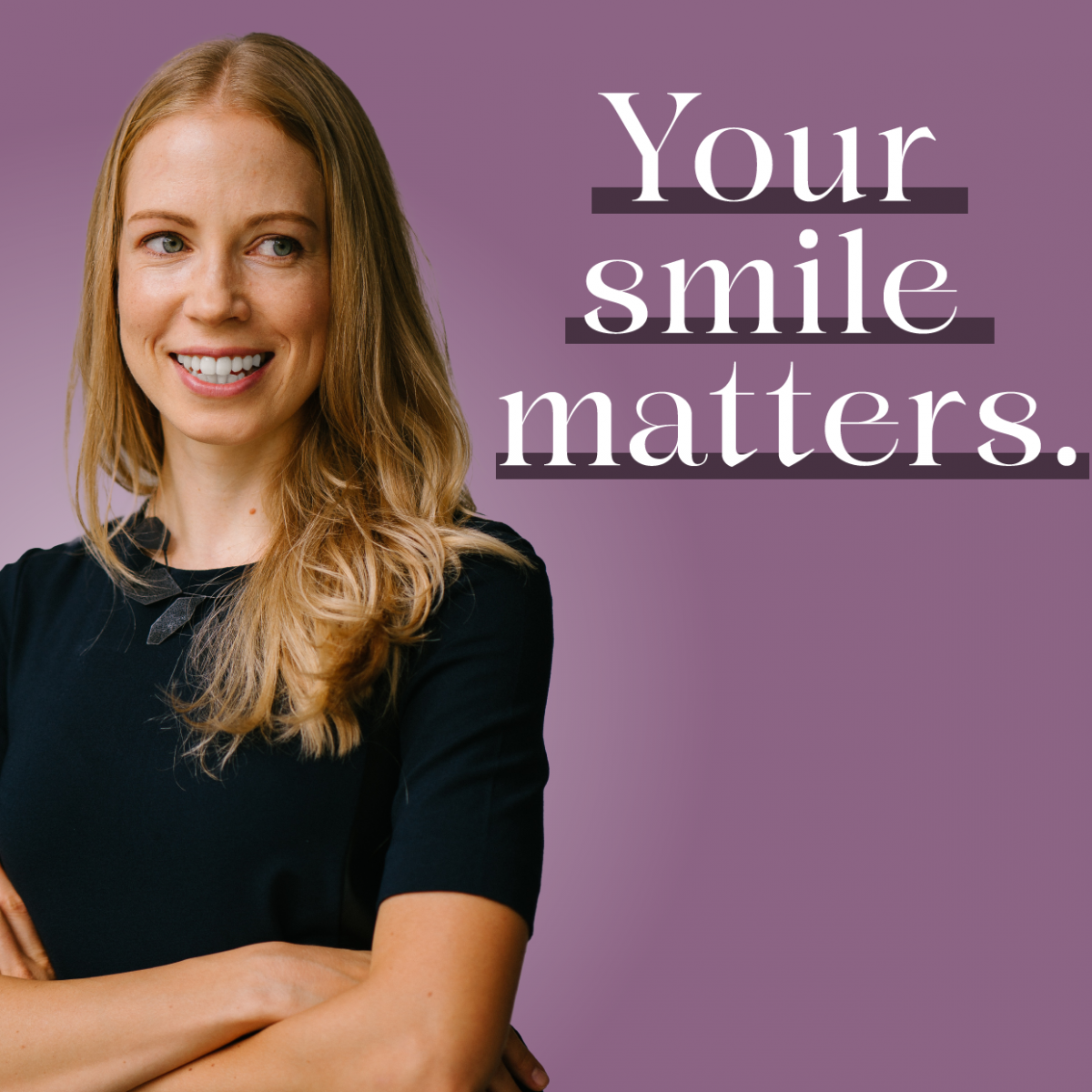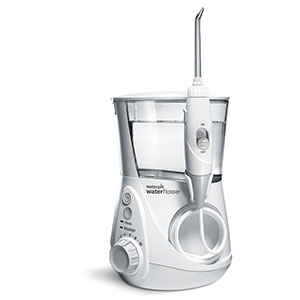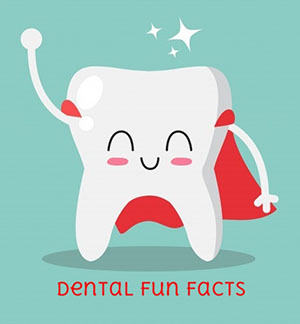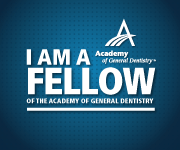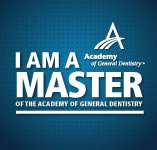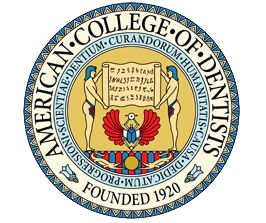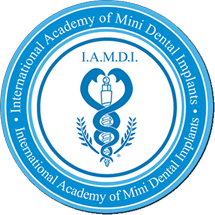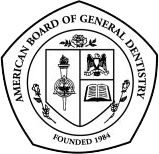What's New
Why does dentistry, in general, and this dentist specifically, oppose the Biden administration’s attempt to expand Medicare coverage to include dental benefits?
While there are lots of arguments going back and forth, and ultimately, nowhere near enough discussion occurring between all of the stakeholders, I’ll reduce it down to my primary objections with the proposal as I understand it today, 13 SEP 2021.
1. By placing the benefit in Medicare part B, this will obligate seniors to come up with a substantial co-insurance payment to cover any services received. This does not help the most financially needy of our senior citizens, which is a primary reason the administration claims for wanting to add the benefit in the first place.
2. The defined benefits have not be fully vetted, but it looks like something like this: seniors will receive a free cleaning, exam, and x-rays 1-2 times/year, and extractions and dentures will be covered with a co-insurance payment. This benefit will kick in sometime in the future, like 2023. Each subsequent year, additional benefits will be added, like a benefit for fillings or crowns, again, with significant co-insurance costs to seniors. Again, this may or may not benefit the most financially needy of our seniors.
a. One of my concerns is that the word “cleaning” will be limited to simply polishing teeth, a procedure most often used for children, which completely neglects the disease process that most commonly results in tooth loss: periodontal disease.
b. A second concern is that because this plan offers no financial relief for any services other than extractions and dentures, financially challenged seniors may elect for what is “cheapest” not what might be “best” for their short and long term health.
3. Medical part B is designed to reimburse physicians who practice in large corporations or hospitals, not dentists who generally practice in private practices. That reimbursement model is predicted to result in the financial reality that a majority of private practice dentist would not be able to accept patients paying with Medicare part B. As a result, seniors may need to change providers and may face longer commutes and less availability to schedule appointments for dental care.
4. Medicare billing and reimbursement is administratively complex. Because dental offices rarely if ever bill medical insurance, there is a general lack of knowledge or training on how to do so. Together, these two factors have the potential for dentists to need to hire new staff just to do the medicare billing, at a time when there are critical worker shortages in the industry across the country.
For decades dentistry has served our communities and our patients through education and prevention. As a dentist, I am very concerned that not only is the current administration failing to heed warnings that have been given for many years about the challenges associated with the type of proposal being forwarded to “solve the senior citizen dental crisis”, but they have opposed or failed to consider actual solutions proposed by multiple dental organizations.
Whatever happens, I remain committed to providing the best possible care I can to all of my patients. These are trying times, times which ask us as individuals to face challenges that feel overwhelming. But, like Americans that have gone before us, we, too, can face these challenges with courage and integrity. I encourage my patients to reach out if you have questions, and for all of us to reach into our history and consider the well-loved stanza from Dickinson’s 1768 The Liberty Song: “Then join hand in hand, brave Americans all! By uniting we stand, by dividing we fall.”
-Dr. Dave
________________________________________________________________
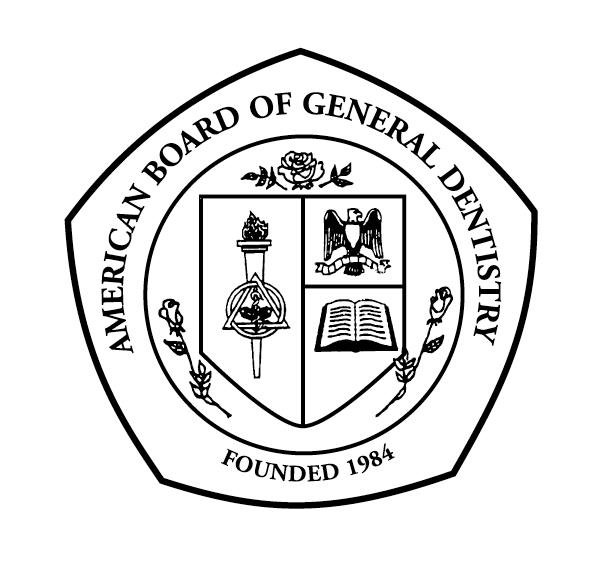
For some, it's not easy to toot your own horn. Most of the time, I'm one of those people. However, today, I want to share with all of my dental family members some great news.
In 2002 I began a 24 month residency in general dentistry. For 24 months, I spent 90-100 hours/week getting training above and beyond what is taught in dental school. That training was in all areas of dentistry, especially focusing on complete diagnosis and the treatment of complex dental needs, like implants, grafting, and orthodontics. My training lead to becoming board certified in general dentistry, a level of training achieved by less than 1% of all general dentists, and truly the pinnacle of formal training for general dentists.
While considered a dental specialist within the military where I was trained, when I entered private practice, my state dental regulations prevented me from advertising the extra training I have received and the value it provides to you as patients at Granite Dental. However, facing mounting legal pressures, our state has recently changed their regulations to allow me to finally both publicly announce that I truly am a specialist in general dentistry and that I can offer to my patients perhaps a little more than what they can receive elsewhere.
Now I'll be quick to state: there are many, many very well trained, competent, and ethical dentists that practice throughout Washington state. So why would you want to see a dentist who is a specialist in general dentistry?
My specialty training is in the diagnosis and treatment of complex dental needs. That training allows me to identify a broader scope of potential dental issues and treat many of them without the need for referrals to other locations where trust has not been established. Things like IV sedation, removing wisdom teeth, placing implants and grafting, advanced treatment for periodontal disease, root canals, dentures, and orthodontics like Invisalign clear aligners. This is a tremendous value to patients, especially patients who have lived long enough to begin to have more and more complex dental needs.
I am happy to provide this competence to all of you and I invite you to consider how your friends and family members might benefit from seeing the only general dentist specialist in SW Washington and one of the very few in the entire state. Our website is a great place for them to schedule with us: www.granitedental.com
I express my gratitude to each of you. I love serving you and the single biggest reason I do is you. I appreciate the respect with which you treat me and my staff, your responsiveness to the care we recommend, and your interest and involvement in improving your health. You're simply awesome, and together we are accomplishing something special that too few experience. Thank you. -Dr. Keller
________________________________________________________________
.jpg)
March 31, 2021
WE’RE SO GRATEFUL to our patients and team members for all that they’ve done this last year as we battled (and got tired of) COVID-19. I
This has been a year of stress for everyone.
THE AMERICAN DENTAL ASSOCIATION released a preliminary report in September stating an increase in dental related problems as the pandemic continued to sweep the nation.

WE ARE HERE TO HELP combat any COVID related dental problems you may be facing. Our office is open for all services and at regular hours to help all of our patients. We are continuing to follow our stringent safety policies to ensure the well being of all patients and staff. If you have any questions please feel free to reach out to us. We look forward to seeing you all again!
-The Granite Dental Team
______________________________________________________________
.jpeg)
March 13, 2020
At Granite Dental the health and safety of our patients is our top priority. Like all medical and dental facilities, we practice standard medical universal precautions to protect ourselves and our patients. Resulting from this rigorous practice, the risk of disease transmission in our office, from our staff, or through procedures completed in our office is lower than in your own homes. Our safety precautions not only protect our patients from the COVID-19 (corona virus), but also from the far more serious and lethal airborne Influenza virus, as well as all other viral and bacterial contagious diseases, airborne and bloodborne.
In short, while we support governmental decisions made out of an abundance of concern, our office truly is safe when it comes to the transmission of communicable diseases. We remind you that dental appointments are scheduled to address specific diseases and disease processes that, when ignored or neglected, can get worse quickly. We recommend that you persist in keeping your scheduled dental procedures unless you are manifesting symptoms associated with being actively infected: fever, runny nose, coughing, etc…If you have any questions or concerns, please call us @ 360.693.2577. Dr. Keller & The Granite Dental Team
________________________________________________________________

SO YOU'VE GOT NEW INSURANCE
January always brings changes, opportunities to start new goals, to begin again. In the dental insurance world, January is generally when change to insurance benefits will begin. while some of those changes are welcome and positive, many are not. As a refresher, let me explain a couple of key items.
First, if you have employer provided insurance-good for you! Great for you!! In 2005 61% of employers provided that benefit to their employees, but by 2012 some studies report as many as 95% of employers now offer some sort of benefit to their employees. So if you have it, be sure to thank your boss. As of 2018, up to 32% of a totally benefit package to employees consists of non-salary benefits like dental insurance, indicating that your boss has been listening when you've asked for dental insurance and provided it as a way to demonstrate your value.
Secpmd. not all dental insurances are the same and are valued differently based on who you are. As a patient, you might value choice in where you receive your care, lower monthly costs, lower out of pocket expenses, broad coverages for things like adult orthodontics or implants, or transparent billing by your insurance company. As a dentist, you might value higher pay for the procedures you provide, quicker payment for services rendered, or broader coverage of procedures commonly needed by your patients. As an employer, you might value lower costs for the benefit you provide, convenient providers for your employees, and a coverage of those procedures that your employees need to stay happy, healthy and able to consistently come to work and do well their jobs.
These competing values most often play out as follows: most employees often get a choice for dental insurance-yes or no. If you have questions about whether or not it will benefit you to have dental insurance, call your dentist. They can help you understand the possible financial advantages and disadvantages of the plan or plans offered. While dental insurance often is a great benefit, sometimes it is less of one than you realize, and in some cases, it may not be worth what you are paying, especially if you are retired and purchase insurance on your own.
If you have several dental insurances to choose from, again, calling your dentist can help you decide which insurance is right for you. For example, how will my choice in insurance affect the cost for me to continue seeing my dentist? Will my costs this year be simiilar to last year? How will the out of pocket costs for the procedures i have historically needed change based on which plan I select? I am considering invisalign: which insurance will provide the best coverage for me? Your dental office staff can and want to answer those sorts of questions for you.
Finaly a word about PPO or preferred provider organization plans. In today's economy, many, if not most, employers are moving towards offering exclusively PPO dental plans. A PPO plan is a contract between an employer and a group fo dentists. The dentists agree to accept lower reimbursements of up to 35% their regular fees with the hope of attracting large numbers of patients with PPO insurance to compensate for their loss of income. Employers love these plans because they represent a lower cost to the company to provide a desirable fringe benefit to their employees. Patients are often attracted to these plans because they may offer lower monthly payments and lower deductibles.
But, buyer beware-with PPO plans, there are some things to consider. The primary thing to consider should be whether or not your dentist will accept your insurance. Often private dentists cannot afford to lose 35% of their income to treat you, forcing you to need to switch offices. Seeing a new dentist can be intimidating and confusing when the new dentist suggest treatments that are inconsistent with your previous provider. Often PPO plants will have providers that predominantly provide care in large clinics or corporate clinics. This often comes with the advantage of expanded hours, but the disadvantage of seeing a different face every time you come to the office.
Perhaps more subtle, what used to be covered on your previosu plan may no longer be covered, or may be covered differently. For example, perhaps your premium plan used to cover crowns at 50%, but now they cover at 40% or not at all unless your tooth breaks. Or maybe you used to get your cleanings covered four times a year, but now they are covered twice a year.
These sorts of things, and many many others demonstrate your need to communicate with your dental office. We truly are here to serve you and we are just as interested as you are in helping you receive the care you need and want. If you have questions, give us a call at 360-693-2577 and we can help you figure out your best path to the health you deserve.
-Dr. Keller
____________________________________________________________
September 5, 2019
Dental Scaling And Root Planing: The Basics

ROUTINE PROFESSIONAL DENTAL cleanings by your dental hygienist include scaling, or the careful removal of plaque and tartar from around the gumline. Tartar in particular can only be removed at a professional cleaning, as brushing and flossing alone can’t do the trick. However, if you have symptoms of gum disease, your teeth may need an even more advanced cleaning called dental scaling and root planing.
The Effects Of Gum Disease
Healthy gums fit snugly around the teeth, providing a barrier that keeps bacteria away from the roots. When gums become diseased, they begin to pull away from the teeth, forming deeper pockets where bacteria can grow. That’s how plaque and tartar can build up beneath the gumline.
What Is Dental Scaling And Root Planing?
When you brush your teeth, you’re cleaning the visible surfaces. Dental scaling and root planing is a deeper cleaning. Dental scaling gets rid of all plaque and tartar above and below the gumline, and root planing smooths out any uneven areas on the surfaces of tooth roots so that bacteria will have a harder time sticking and gum tissue will be able to heal effectively.
This kind of deep cleaning has been described as the gold standard of treatment for patients with gum disease. To get the gums healthy again, all that gunk needs to be cleaned out, which is what dental scaling and root planing does. While routine scaling helps prevent gum disease, scaling and root planing is a non-surgical treatment for existing gum disease. In cases of severe periodontitis, it may be recommended before gum surgery.
Removing Tartar Is Like Pulling A Splinter
If you’ve ever had a splinter in your finger, you know that getting it out isn’t very comfortable, but as soon as it’s gone, you feel instant relief. Dental scaling and root planing is the same way. It may require multiple appointments and a local anesthetic to eliminate discomfort, but it leaves your teeth and gums feeling wonderful.
Afterward: Taking Care Of Your Gums
Getting your gums healthy again is a process, and the dentist is your best resource. After your periodontal treatment, whether it’s surgical or just scaling and root planing, we’ll want to pay close attention to your gums through regular maintenance visits. Every two to four months, you’ll come in for routine cleanings and examinations where we check the pocket depth of your gums.
Getting Your Healthy Smile Back — And Keeping It!
The best treatment for gum disease is prevention, whether you’ve had it before or not. A good oral hygiene routine is critical, so make sure you’re brushing the inside, outside, and chewing surfaces of your teeth twice a day, flossing daily, replacing worn out toothbrushes, and scheduling regular appointments with us. Avoiding smoking will also help you keep your gums healthy.
A healthy life starts with healthy gums and teeth!
As always if you have any questions feel free to call our office at 360-693-2577, we look forward to helping you! -Dr. Keller, Erin, Jane & the whole Granite Dental Team
Top image by Flickr user Pedro Ribeiro Simões used under Creative Commons Attribution-Sharealike 4.0 license. Image cropped and modified from original.
________________________________________________________________
June 5, 2019
Calcium Isn't Just Good for Bones, It Benefits Your Smile Too!
JUNE IS NATIONAL DAIRY MONTH so we thought we'd share some reasons why calcium in dairy is so important for our smiles. We've all been told (and many of us tell our children) that milk builds strong bones. But our nutritional and dietary preferences are not only widely varied, they also change from time to time. Does milk really “do a body good”? Some believe it does, and others believe it doesn’t.
Regardless of your take, you’re not alone. Today, millions of people follow vegan or vegetarian diets, and tens of millions of people are lactose intolerant. Whether or not you choose to avoid dairy for health or other personal reasons, here are some thoughts from the Granite Dental Team.
Calcium and Vitamin D Play a Key Role in Oral Health
It’s true that dairy products are full of calcium, and often supplemented with vitamin D (which helps your body absorb calcium and other bone-building minerals). While people on specialized diets (including vegans and vegetarians) are typically very careful about eating healthy, there’s still a risk of calcium and vitamin D deficiency.
One of the dangers in calcium and vitamin D deficiency is the increased risk of periodontal (gum) disease. In addition, these deficiencies can weaken your teeth and lead to tooth decay. Without the right vitamins and minerals, your mouth’s defenses may be down.
Need a Good Source of Calcium? Dairy Isn't the Only Option!
The good news is that, if you choose, you can get these nutrients from alternative sources. For example, just one ounce of sesame seeds contains almost as much calcium as an entire glass of milk. Other major sources of calcium are dark leafy greens like spinach, kale, and collard greens.
Check out this video about how important calcium is for our smiles:
10 foods high in calcium
When it comes to vitamin D, surprisingly, your best source is the sun! When exposed to the sun’s radiation, your body naturally produces vitamin D. But of course, be careful and use common sense—you also know the potential problems associated with prolonged/unprotected sun exposure.
There are also a number of things we can eat and drink that are “fortified” with calcium and vitamin D including soy milk, orange juice and some breakfast cereals. You can also consider taking supplements.
Do you have questions about this topic? Contact us! Do you have suggestions for others who may be wondering about other sources for their daily calcium? Let us know! Leave a comment below, or on our Facebook page. We love hearing from you!
And, as always, thank you for being our valued patient!-Dr. Keller & the Granite Dental Team
________________________________________________________________
May 31, 2019
Frustrated With Flossing? Try Waterpik®!
FLOSSING IS A CRUCIAL element of our daily oral hygiene routine. A toothbrush simply cannot reach the plaque and food particles stuck between our teeth, so we need to floss to get at it. Simple brushing is even less effective on its own for those with braces, which introduce countless new hard-to-reach crevices where bacteria can hide.
As necessary as flossing is, it can still seem like a hassle at times. That’s why we’re so excited that old-fashioned flossing isn’t the only option. One of our favorite alternatives to traditional floss is the Waterpik® Water Flosser, the first powered interdental cleaner to earn the American Dental Association’s seal of approval.
How Waterpik Compares
Our patients love using the Waterpik Water Flosser, and our hygiene team really recommends it. One patient said, "It does not take very long to floss your teeth and it leaves you feeling clean". It is especially important to use a Waterpik if you have any kind of implant or crown as it can be difficult to reach with conventional floss those surrounding areas.
Watch this video to see how the Waterpik Water Flosser gives you a cleaner, healthier smile than brushing alone:
Get Your Own Waterpik Water Flosser!
We offer the Professional model Waterpik Water Flosser at our office. When you visit for your next cleaning make sure to pick one up.
Let Us Know How You Like It!
We’d love to hear how you like your Waterpik Water Flosser once you start using it, so make sure you let us know at your next appointment with us. Until then, don’t forget to brush twice a day and use the Waterpik to “floss” once a day!
Keep cleaning those gorgeous pearly whites!
-The Granite Dental Team
The content on this blog is not intended to be a substitute for professional medical advice, diagnosis, or treatment. Always seek the advice of qualified health providers with questions you may have regarding medical conditions.
Top image by Flickr user SITS Girls used under Creative Commons Attribution-Sharealike 4.0 license. Image cropped and modified from original.
________________________________________________________________
May 1 2019

I, like many people, am deeply troubled by this article entitled Is Dentistry a Science in the Atlantic Magazine, for lots of reasons. And its not easy to express all of those reasons. But in an attempt to be loyal to my professional obligation as a doctor, I feel a need to weigh in.
First, in a profession of >150,000 doctors, and many times that number of auxiliaries that support them, judging a profession by the actions of an individual is unwise. Generally, the competent and consistent work done by the vast majority of that throng of care providers is not newsworthy and therefore absent from the news media. Usually anything that does “make the news” is often negative in character and, while sensational, statistically insignificant.
Second, because I am not personally acquainted with the cases described, I cannot make many comments. Based on the data reported, the number of some of the procedures accepted by patients did seem unusual. However all health care, including dentistry, is unique, so without looking at each case it is impossible to know if any of that care was inappropriate. I am encouraged by the work done by the dentist who purchased the practice and that these irregularities are being looked into. While not perfect, peer review is a healthy way to investigate these sorts of matters.
My greatest concern with the article lies firmly with the types of comments that are being made on various social media platforms, one of which I would like to address.
There were numerous comments made that followed this pattern: I have been seeing Dr. A for years and he has either never told me I had any problems or he has always told me I don’t have any problems. I then went to see Dr. B, who says I have problems I was previously unaware of. Dr. B must be a crook, so I’ve left him in search of Dr. C, D, E…who will agree with Dr. A.
All patients must understand a truth in healthcare: repeated care by a single provider is perhaps the most predictable way to receive consistent care. That does not mean excellent, quality, or even adequate care. It simply means consistent. Nevertheless, at least in dentistry, this consistency is generally a benefit to patients. This is because while dentist manage a large variety of diseases and conditions, the primary two, dental decay and periodontal disease, are both chronic infectious diseases best managed through consistent care.
Take the example of a simple dental cavity. There are multiple ways to treat a dental cavity, which is a carbohydrate modified bacterial infections disease. Generally, these include a spectrum of care with medicine on one end and surgery at the other. At the most conservative end of the spectrum, taking the medicine route, a doctor may prescribe fluoride, xylitol, diet modifications, changes in oral hygiene devices or protocols, all of which are intended to attempt to manage the infection short of surgery. These approaches require consistent care to achieve their desired outcome, meaning coming in regularly year after year to allow the same provider to monitor whether or not the medical route is adequate and maintaining or improving patient health. If a doctor knows you well, and is familiar with all the variables in your individual life that influence the progression of a cavity in your mouth, and has been monitoring it for many years, his decision to keep monitoring it and attempting to use medical routes to maintain or improve its condition is justifiable. However, if he has just met you and at that initial examination, finds such a cavity, his lack of familiarity with you as an individual might slide his decision making to the other end of the spectrum, that of surgical intervention. Surgical intervention in dentistry includes such procedures as fillings, crowns, root canals, periodontal scaling and root planning, tooth extractions, and hundreds of other procedures.
“So, what do I do about my cavity?” is a problem faced routinely in the dental office. My encouragement is to have a conversation with your doctor to understand as well as you can your immediate situation, advantages/disadvantages, risks, and alternatives for care, and then make a decision. Ultimately, there is not a “right” or a “wrong” answer to that question most of the time. Usually there are lots of answers along the continuum from medical intervention (including doing nothing at this time) to surgical extraction (including extraction, which is sometimes needed with “simple” cavities).
When patients run into different diagnoses and treatment plans from different providers, it is most often a demonstration of poor communication within the patient/doctor relationship, not an indication of incompetence or avarice. So keep asking questions until you and your doctor can find a happy middle ground. Variations from that hallowed spot often should be avoided at the risk of your health.
________________________________________________________________
April 23, 2019
Could Alzheimers Begin with the Bacteria that causes Gum Disease?
Dr. Keller is a big believer that the health of our mouths affects our overall health. He was interested to read a recent study published in the journal Science Advances which he shared with the staff here at Granite Dental. This study indicates that there may be a link between Porphyromonas Gingivalis and Alzheimers. The Porphyromonas Gingivalis bacterium is known to cause gum disease and might be capable of traversing the path from mouth to brain where it can trigger chemical changes that damage brain function. A new drug to fight this is currently in clinical trials.
For more information on this exciting study visit this NOVA article here.
--From the Nova article: "This is very exciting in many ways," says Sim Singhrao, who studies neurodegenerative disease at the University of Central Lancashire in the United Kingdom, but was nto involved in the new study. "This work not only highlights the problem of poor oral hygiene as a risk factor for Alzheimer's, but it might also offer a futuristic solution."
In the new study a team led by Stephen Dominy and casey Lynch of Cortexyme, a San Franscisco-based company developing Alzheimer's therapeutics, found bacterial gingipains in the brains of over 90 percent of a group of more than 50 deceased Alzheimer's patients. And the more gingipains an individual had, the more that brain showed chemical signs of deterioration. --
It is important to remember that Alzheimer's, the causes and treatments are very complex. However, we hope that as patients are better educated about the importance of good oral health they will be healthier overall. Call us today and schedule your regular cleaning and exam.
-Granite Dental Team
________________________________________________________________
February 25, 2019
Why Are Dental Sealants Important?

DO YOU SPEND A LOT of time worrying about how to keep your child’s teeth cavity-free? Teaching them to brush and floss are critical steps towards ensuring that they can take good care of their teeth for life. Once those permanent teeth come in, there’s something we can do at the dental practice that will give them even more protection against tooth decay, and that something is applying dental sealants.
Bacteria Versus Your Child’s Teeth
The reason it’s so critical to teach our children good oral health habits at an early age is that 40 percent of children develop cavities by the time they start school because of poor oral hygiene and consuming sugary snacks and drinks. Every human mouth contains numerous species of bacteria that excrete acid onto our teeth when consume sugar, and this acid wears away at our enamel and leads to tooth decay.
Brushing, flossing, and limiting our sugar intake are all important ways we can keep that bacteria in check. But even when we do all of these things, there are crevices in our teeth where bacteria can hide, and these can be difficult to reach with a toothbrush. That’s where sealants come in!
What Are Dental Sealants?
Dental sealants are a protective clear plastic layer brushed onto the chewing surfaces of teeth to “seal them off” from plaque and bacteria that would cause cavities to form. Dentists started using sealants in the 1960s, and they’ve been popular ever since.
Typically, sealants are applied to the molars because these teeth are the ones that do the most chewing and have those deep crevices where bacteria can hide. The sealant will fill in and cover any crevices on the tooth to act as a shield from the bacteria. What makes them even better is that the sealant application process is quick and painless!
Check out this video for more information about sealing out tooth Decay.
When Should Your Child Get Sealants?
The best time to bring your child in for dental sealants is around when their adult molars erupt, which is usually at age six. The sooner they sealants are in place, the less opportunity the oral bacteria will have to build up in the crevices of the molars. However, sealants are still beneficial when applied later on. Older children and even adults can get them and have their teeth protected too!
Schedule Your Child’s Next Appointment Today!
Whether your child needs sealants or just a normal twice-yearly dental cleaning, don’t hesitate to schedule their next appointment! And if you have any concerns with the way your child is brushing or with how the food they eat might be affecting their teeth, be sure to let us know so that we can help.
Our top priority is protecting your child’s smile! Call us today for more information and to schedule an appointment. 360-693-2577 -The Granite Dental Team
January 23, 2019
The Top 3 Best Drinks For Your Teeth

MANY OF THE THINGS we drink are actually pretty bad for our teeth, especially soda, fruit juice, and coffee. What options does that leave for the dental health conscious to quench their thirst? Fortunately, there are a few drinks that are much less likely to cause stains or contribute to enamel erosion and decay, which makes them much better for our teeth!
3. Milk
Milk is an important source of calcium, which is essential for healthy teeth and bones. A certain amount of enamel remineralization is possible if your body has the right building blocks available, so getting plenty of calcium is a great way to stock up on those building blocks to keep your teeth strong. If you are lactose intolerant, you don’t have to miss out on this either, because calcium-fortified soy milk is another great option.
One thing to be aware of, however, is that milk does have natural sugars in it, which is why it’s a bad idea to leave a child with a bottle of milk over a long period of time. The longer the sugars in milk are left on the teeth, the more they feed oral bacteria, contributing to tooth decay. This is how a condition commonly known as “bottle rot” can happen for babies and toddlers.
2. Green And Herbal Tea
While black tea, much like coffee and red wine, is prone to leaving stains on teeth, green tea and herbal teas do not carry this drawback. In fact, like milk, they actually have dental health benefits. Tea contains compounds called polyphenols, which help fight bacteria. Just make sure not to load your tea with sugar or even honey, as that would cancel out the benefits of the polyphenols. If you can enjoy it plain, that’s great, but you can also use sugar-free sweeteners.
1. Water
It might seem boring to include water on a list of mouth-healthy drinks, but it is absolutely essential to our overall health that we stay well hydrated — and specifically to our oral health! If we aren’t drinking enough water, we may not have enough fluid to produce saliva, which is the mouth’s first line of defense against acids and bacteria. The act of drinking water itself will also flush out remnants of food and sugary or acidic drinks, helping to keep our teeth clean until the next time we can brush.
What We Drink Is Only Part Of The Equation
Cutting back on some of the less healthy drinks in favor of drinking more water, milk, and green or herbal tea can make a big difference in our oral health, but it isn’t a substitute for other oral health habits. Make sure you’re also keeping up with your twice-daily brushing, daily flossing, and dental appointments every six months!
We’re here to help you keep those teeth happy and healthy, give us a call today 360-693-2577 -Granite Dental Team
________________________________________________________________
December 28, 2018
What to do when you have a TOOTHACHE?

A TOOTHACHE IS never fun to deal with, and they can happen for a variety of reasons. Do you know what to do when one strikes, especially if it happens over the holidays or at the beginning of the weekend and you can’t get quick access to professional dental care?
Toothache Causes
The most common reason a tooth might initially feel painful is tooth decay, but it isn’t the only reason. Tooth pain can also be the result of pulp inflammation, an dental abscess, a cracked tooth, or even gum disease. Impacted teeth (teeth that are blocked from coming in where they should by bone, gum tissue, or other teeth) can also be painful. Tooth sensitivity can lead to discomfort as well, and sometimes the cause is merely a sinus infection or congestion.
Reducing Dental Pain Before Your Appointment
The best thing to do when you have a toothache is to come see us right away. If for some reason that isn’t possible, there are a few things you can do to manage your dental pain in the meantime.
Rinse and spit with warm saltwater to reduce inflammation
Apply a cold compress to the cheek near the sore area
Take anti-inflammatory medication
Use an over-the-counter topical medication
Preventing Future Toothaches
If you’ve had or currently have a toothache, you probably want it to be your last. Obviously some of the causes can’t be prevented, such as sinus infections and a tooth being damaged in an accident, but there’s a lot you can do to protect your teeth from the aches and pains that come from poor dental health.
Brushing twice a day for two minutes with a soft-bristled brush and fluoride toothpaste, flossing daily, and scheduling regular dental appointments will keep your teeth healthy. You can also help your teeth out by cutting down on sugary foods and drinks.
Bring That Tooth Pain To Us As Soon As You Can
Pain is the body’s alert system to let us know when there’s a problem, and it’s important not to ignore it. No matter what you think might be causing your toothache, schedule an appointment with us to get it taken care of before the underlying problem has a chance to get worse. We’ll be able to take a look and get your tooth the treatment it needs!
Let’s fight that toothache together!- Your Granite Dental Team
**The content on this blog is not intended to be a substitute for professional medical advice, diagnosis, or treatment. Always seek the advice of qualified health providers with questions you may have regarding medical conditions.
________________________________________________________________
December 14, 2018
Stocking Stuffers For Healthy Teeth
THE HOLIDAYS ARE approaching, and that means it’s time to shop for treats and presents for the people we love! Often times, these treats aren’t the healthiest choices for our teeth, which is why we’ve put together some suggestions for more dental-friendly goodies to stuff in those stockings — as well as some things to avoid.
Stocking Stuffer No-Nos
Unfortunately most candies are not great for your teeth, however in moderation they can be enjoyed. Just be aware that any sticky foods need to be completely cleaned out of your teeth or they may cause decay. Some of the worst offenders are our favorites: Candy Canes & Taffy!
The Dentist’s Picks
Dr. Keller's favorite holiday treats are fruit, nuts, cheese & sausages. He loves a holiday smorgasborg with all kinds of delicious foods but tends to personally stay away from the candy.
Wishing All Our Patients A Happy, Healthy Holiday Season!
Of course, another option would be to avoid edible stocking stuffers altogether, in favor of small toys and games that will take your children’s minds completely off their sweet tooth cravings. No matter what goes in those stockings, though, don’t forget to keep up with all those good brushing and flossing habits through the holiday season, and we look forward to seeing you at your next cleaning appointments!
Thank you for being part of our practice family!
Dr. Keller & the entire Granite Dental Staff
________________________________________________________________
November 7, 2018
10 Fun Dental Facts You Probably Didn’t Know!
THE TRUTH IS, our teeth are amazing! Without them we wouldn’t be able to speak, eat, sing, or smile properly. We’d like to celebrate our teeth by sharing some interesting dental facts you may not have known!
Here Are 10 Fun Dental Facts
1. If you've been using floss daily, by the end of the year the total length will be the perimeter of a baseball diamond! Is your floss going to make it to home plate?
Because birds lack teeth, many swallow stones or grits to aid in breaking up hard foods.
2. On average, women smile 62 times a day and men only eight times a day. Step it up, guys!
3. The average American spends 38.5 total days brushing their teeth in their lifetime.
4. Only 40 percent of young people age six to 19 have had cavities in their life. That’s down from 50 percent a decade ago!
5. In the middle ages, people thought that a dog’s tooth boiled in wine made an excellent mouth rinse to prevent tooth decay. Tasty!
6. The Egyptian plover, also known as the crocodile bird, is famous for flying into crocodile mouths and cleaning their teeth.
7. Prior to the 1850s, ‘toothpastes’ were usually powders and contained soap and chalk.
8. An obscure law in Vermont states that it is illegal for women to wear false teeth without the written permission of their husband. Crazy!
9. Different animals have different amounts of teeth; armadillos have 104, pigs have 44, and humans have 32.
And last #10 the narwhal's tusk Is actually a tooth!
How Many Of These Facts Have You Heard Before?
It’s always fun to learn about the obscure facts and crazy history that make up our tooth trivia! Do you know any other cool dental facts? Comment below or on our Facebook page! And remember, take care of your teeth. They do so much for you!
Granite Dental Team
________________________________________________________________
October 25, 2018
Social Media Helps Us All Smile
IT MIGHT NOT SEEM SO AT FIRST, but a dental practice is all about relationships—relationships between our team members and our relationships with YOU, our valued patients and friends. When we stop to think about the things

